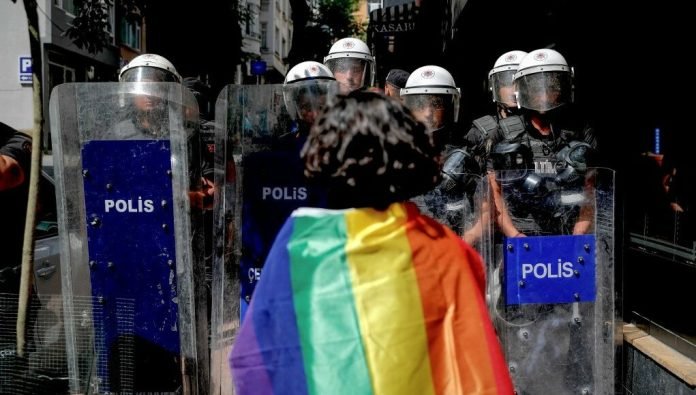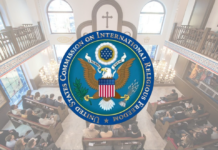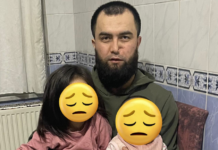Turkey’s broadcasting watchdog has announced that 2025 has been designated as the “Year of Combatting LGBTQ+ Content,” signaling a continuing crackdown on LGBTQ+ representation in the media as part of the government’s broader push to promote conservative family values, Turkish Minute reported.
Feyzullah Tecirli, deputy chairman of the Radio and Television Supreme Council (RTÜK), made the statement during a parliamentary committee meeting on child abuse and violence prevention on Thursday. He said the agency is closely monitoring content across platforms to enforce the policy as part of the government’s “Year of the Family” initiative for 2025.
The “Year of the Family,” announced by President Recep Tayyip Erdoğan in January, is supposed to emphasize traditional and Islamic values in family policy. The initiative has attracted criticism from women’s groups for seeking to instill more traditional values in society.
Tecirli said RTÜK had also declared 2025 the “Year of Combatting LGBTQ+ Content” and added, “In this context, our colleagues continue monitoring and reporting on both on-demand streaming platforms and traditional broadcasting. … Rather than imposing censorship after content is produced, our goal is to support family and child-friendly initiatives.”
Abdülkerim Gün, vice president of the Information and Communication Technologies Authority (BTK), also talked about the government’s strict stance on LGBTQ+ content, particularly in digital media. He said the BTK focuses on child safety in its internet filtering services and “absolutely does not allow LGBT content.”
“We are already facing lawsuits from numerous associations over this issue, but we do not mind and will not back down,” he said.
Meanwhile, RTÜK Chairman Ebubekir Şahin announced a partnership with the İstanbul Family Foundation, which aims to cooperate with relevant ministries, schools and public and private sector organizations to preserve the Turkish-Islamic family structure. The “Cooperation Protocol on the Protection and Strengthening of the Family” seeks to align digital and television content with “family values,” protect children from “harmful content” and promote “national and moral values” through media, according to a statement on the council’s website.
Şahin said the fight against LGBTQ+ representation would continue across all platforms, including on-demand services. “We will take all necessary measures to prevent this deviant mindset from further harming the Turkish family structure,” he vowed.
The developments come as Turkey’s Justice Ministry proposes sweeping legal changes that would restrict gender transition procedures and criminalize public expression of LGBTQ+ identity under a draft bill.
If enacted, the law will raise the minimum age for gender transition from 18 to 21 while criminalizing public displays of LGBTQ+ identity under the penal code’s “public obscenity” article.
LGBTQ+ organizations in Turkey have strongly opposed the draft legislation, with 15 advocacy groups warning in a joint statement that the “law of discrimination and hate” threatens fundamental rights and democracy, according to a report by the ANKA news agency on Thursday.
“This is not just a law targeting LGBTQ+ people — it is an attempt to normalize the government’s anti-democratic practices and will leave a dark stain on history,” they said, urging LGBTQ+ individuals, human rights defenders, political parties and the public to take a stand.
Signatories included major LGBTQ+ rights organizations such as Kaos GL, Pembe Hayat (Pink Life) and the Social Policy, Gender Identity and Sexual Orientation Studies Association (SPoD).
Although homosexuality has been legal throughout modern Turkey’s history, gay people regularly face harassment and abuse.
The proposed changes reflect recent rhetoric from President Erdoğan and his government, which have portrayed LGBTQ+ identity as a threat to traditional family values. The LGBTQ+ community, which is increasingly marginalized in Turkey, has been a key target in Erdoğan’s speeches. Pride parades have been banned since 2015, and state-sponsored anti-LGBTQ+ rallies have become more frequent. The Religious Affairs Directorate has also used Friday sermons to label LGBTQ+ movements as attempts to “erase the natural essence of men and women.”















